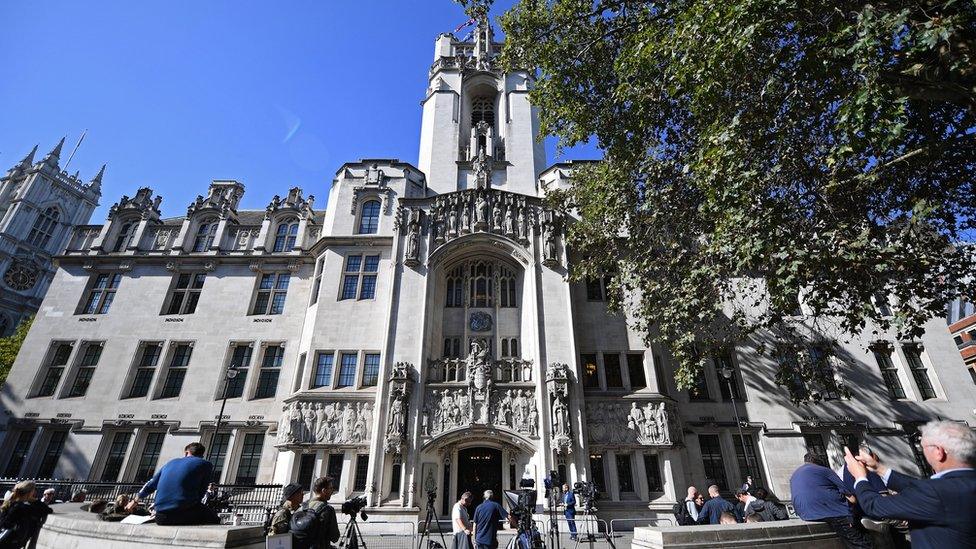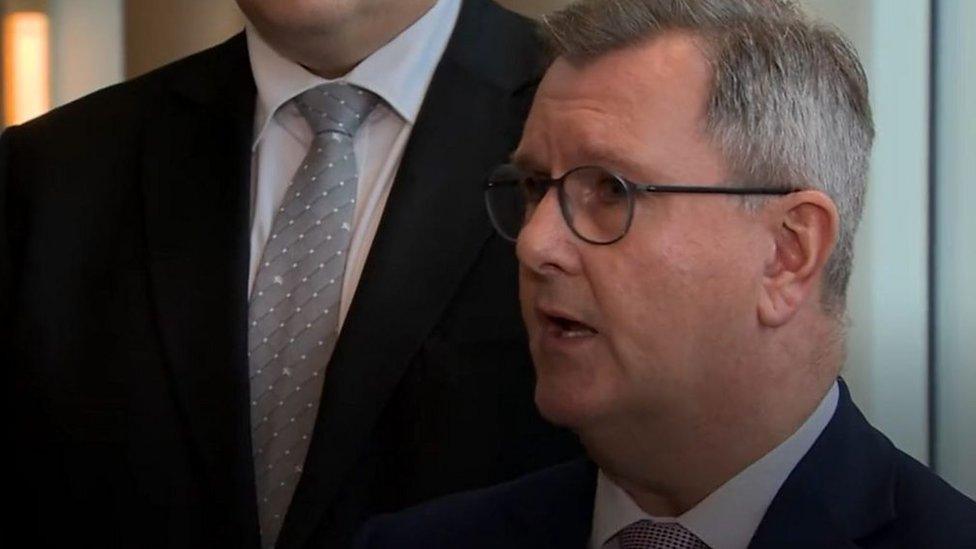Supreme Court begins hearing NI Protocol challenge
- Published
- comments

The Supreme Court in London is the UK's highest court
The UK's highest court has begun hearing a legal challenge to the lawfulness of the Northern Ireland Protocol.
It has been mounted by a group of unionist politicians.
They have argued the protocol, part of the government's Brexit deal with the European Union, breaches the Acts of Union and the Northern Ireland Act.
Earlier this year, the Court of Appeal in Belfast dismissed their challenge on all grounds.
Judges ruled the protocol had lawfully overridden part of the Act of Union.
It followed a previous ruling by the High Court which also determined that the protocol was lawful.
Now the Supreme Court is hearing the case.

The legal challenge has been rejected by the High Court and the Court of Appeal in Belfast
The protocol was agreed by the UK and EU to ensure free movement of trade across the Irish land border after Brexit.
In March, the Court of Appeal found the Withdrawal Agreement Act, which includes the protocol, did conflict with the 1800 Acts of Union in respect of free trade between Britain and Northern Ireland.
However, the court added the Withdrawal Agreement lawfully modified the Acts of Union.
The lady chief justice said the Acts of Union had not been repealed but one section, Article 6, now has to be read subject to the Withdrawal Agreement Act, which placed into law the arrangements for the protocol.
The Court of Appeal, however, suggested there were legal points of public importance which merit consideration by the Supreme Court.
It referenced whether a modification of the Act of Union by the protocol amounted to a change in Northern Ireland's constitutional status.
In the opening of his challenge on Wednesday, John Larkin KC said that issue was one of "three central themes" of the appeal.
He said the protocol had "fundamentally changed" Northern Ireland's position within the UK, in a way that was "incompatible with the guarantee" provided in the Northern Ireland Act.
He said that law was designed to guarantee constitutional change would not take place "without the consent of the people of Northern Ireland in a referendum".
'Equal footing'
Mr Larkin also told the court that the Acts of Union were the "fundamental constitutional structure" of the UK.
Part of the "legality argument" made by Mr Larkin, he said, relates to part of the Acts of Union which states Northern Ireland must be on an "equal footing" with Great Britain when it comes to free trade.
Normally, a constitutional law, like the Acts of Union, can only be expressly repealed, but they can be impliedly by another constitutional law.
That means that the more recent legislation automatically overrides the older laws.
But Mr Larkin suggested that the protocol was in breach of the equal footing rule and said the court needed to "give effect to a constitutional guarantee".
He also argued that the Withdrawal Agreement Act was "not a text that was designed to make certain things clear".
The case continues.
Related topics
- Published14 March 2022

- Published17 October 2022
